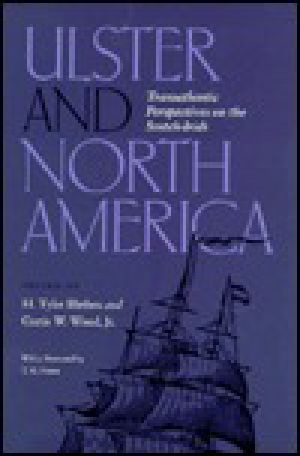Ulster and North America · Transatlantic Perspectives on the Scotch-Irish

- Authors
- Blethen, H. Tyler
- Publisher
- University of Alabama Press
- Tags
- test , history
- ISBN
- 9780817308230
- Date
- 1997-05-01T00:00:00+00:00
- Size
- 1.18 MB
- Lang
- en
Ulster and North America addresses the complex issues of Scotch-Irish (or Ulster Scots) history and ethnic identity by viewing them from a transatlantic and comparative perspective. The eleven essays, originally presented at meetings of the Ulster-American Heritage Symposium by scholars from Scotland, Ireland, Canada, and the United States, examine values, traditions, demographics, and language. They also investigate the process of migration, which transmitted that culture to North America, and the subsequent adaptation within American culture. This diverse collection of essays emphasizes several themes. First is the dynamic nature of Ulster society in the 17th and 18th centuries and the rapid changes occurring there, especially affecting Presbyterianism and community cohesiveness, which shaped the motives for migration to the New World. Another theme is the experience of migration, asking who migrated, when they went, what their expectations were, and how closely colonial reality matched those expectations. A third theme is the development of economic strategies and community-building both in Ulster and in North America, making important contributions to the "new rural history" and explaining the success of the Scotch-Irish on the new American frontier. A final theme is ethnic identity and cultural diffusion, advancing the ongoing debate initiated by Forrest McDonald and Grady McWhiney and elaborated on by David Hackett Fischer. The contributors to this volume present a unique combination of resources and methodologies including history, genealogical group and community studies, linguistics, demographics, and cultural geography. In emphasizing the diversity of the Scotch-Irishexperience, they make clear how inappropriate previous single-model efforts have been in explaining the history of this elusive group. The new research presented here illustrates the value of transatlantic dialogue and of comparative studies firmly based on local and regional studies for